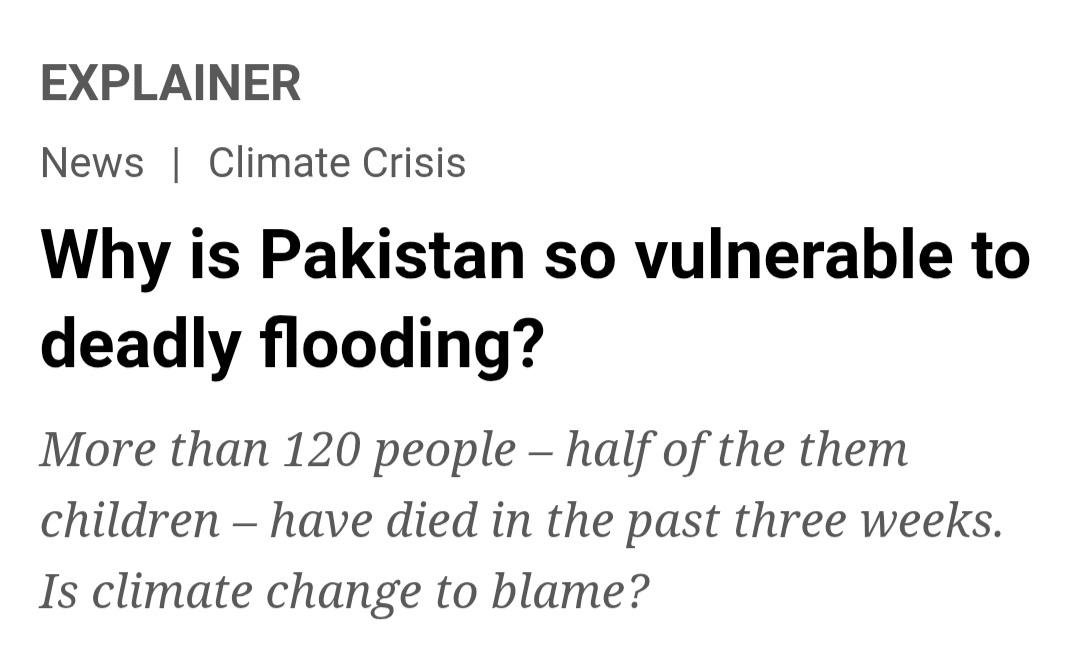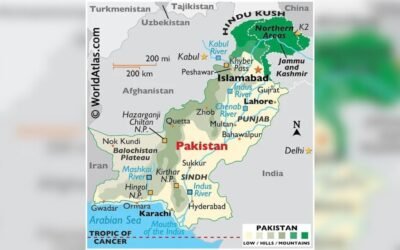The Al-Jazeera Weekly Wrap-Up brings to you all the important news of the past week in Asia, particularly South Asia, compiled in one article. This week covers all the top developments and headlines from July 13th to July 19th, 2025.
Air India Flight 171: One of the Deadliest Crashes of the Past Decade:
This week, new details have emerged about last month’s Air India plane crash. The Wall Street Journal published a report on Wednesday, quoting sources close to United States officials’ early assessment of the evidence, and sharing speculation on the contents of the black box video. An audio recording of the last conversation between the two pilots reveals the captain asking the second pilot if he had turned off the switches controlling the flow of the fuel to the plane’s engines. The other pilot replied that he did not. Shortly after, the transmission of “Mayday” was heard.
India’s Aircraft Accident Investigation Bureau (AAIB) preliminary report found that both engines shut down within one second, leading to an immediate loss of altitude and the eventual crash into the densely populated suburbs of Ahmedabad. The crash claimed the lives of 242 people on board and 19 people on land on June 12th. While the preliminary report avoids assigning blame, US officials who have examined the evidence suggest that Sabharwal, the pilot monitoring, may have moved the fuel switch to “cut off”. US pilots say that the flying pilot, Kunder, would have been too occupied to do so.

Source: Aljazeera
Two groups of commercial pilots have rejected these findings. The Indian Commercial Pilots Association (ICPA) and the Airline Pilots’ Association of India (ALPA India) have proposed caution in assigning blame, stating that there is absolutely no evidence at this stage. The ICPA stated that it was “deeply disturbed by speculative narratives…particularly the reckless and unfounded insinuation of pilot suicide”.
US aviation analyst Mary Schiavo also warns people against drawing conclusions based on premature conclusions. She cited a previous incident involving an All Nippon Airways Boeing 787, whose engines suddenly shut down mid-flight en route to Osaka, Japan. It was later found that the aircraft’s software had mistakenly interpreted the plane as being on ground, automatically moving the fuel switch from “run” to “cut off”. Schiavo claims that a similar possibility cannot be ruled out in the case of the Air India crash.
The Situation of Afghan Refugees
In 2022, in the UK, a spreadsheet containing the personal details of around 18,700 Afghan applicants was unintentionally revealed by a British soldier tasked with vetting the applicants. The leak was revealed in August 2023 after some parts surfaced on Facebook. Worried that the Taliban could use this data breach, the UK established a secret relocation program – the Afghan Response Route – with plans to relocate 24,000 affected individuals. Media reporting on the issue was finally allowed in July 2025. While the government’s swift actions show a genuine effort to relocate Afghans, the degree of procedural failure, data breach, and initial media suppression can not be overlooked. These actions have raised questions about the UK’s commitment to refugee protection and accountability.

Source: Aljazeera
On the other hand, millions of Afghan refugees are being deported to Afghanistan by Iran, Pakistan, and the US. It is anticipated that Germany is likely to follow suit after talks with the Taliban. It is a precarious time for Afghan refugees as US President Donald Trump seeks to revoke their temporary protected status (TPS). Currently, approximately 11,700 of the 180,000 Afghans in the US are covered by TPS. Refugee rights advocates claim dire consequences will await Afghans if they are forced to be deported, especially for women. In light of this, the appeals court has extended TPS, but the future remains uncertain. The court’s decision to temporarily block the termination of nearly 12,000 Afghans’ Temporary Protected Status underlines the critical necessity of judicial oversight in protecting vulnerable migrants from abrupt policy reversals that risk their safety and livelihoods.
Possibility of Flooding in Pakistan

Source: aljazeera
Glacial melts, induced by climate change, and intensifying monsoon rains, combined with systemic governance failures such as inadequate infrastructure, deforestation, and poor urban planning, make Pakistan vulnerable to deadly flooding. Early, heavy rainfall, at times 784 percent above average, and accelerated glacier melt in places like Gilgit-Baltistan, where temperatures soared above 48 °C, were the leading causes of the recent June–July 2025 floods, which have killed over 180 people and displaced thousands in areas like Punjab, Khyber Pakhtunkhwa, Sindh, and Balochistan. Experts point out that deforestation, unauthorized building in floodplains, outdated drainage, and a lack of preparedness and accountability for disasters all contribute to this climate threat, highlighting the fact that policy failures are a significant issue. Despite the devastating floods of 2022, the lack of implementation of preventative reforms showcases climate inaction, which could leave millions affected.
Conclusion
This week’s major news highlights the internal issues occurring in South Asian countries, especially. With several countries implementing mass deportation plans, it seems that Taliban-led Afghanistan will soon experience a significant increase in refugees. Afghans who have lived and raised their families abroad feel hopeless and abandoned. They fear what awaits them in Afghanistan, especially women, who the International Crimes Court claims are being persecuted by the Taliban. It is unlikely that the deportation order will be overturned, but it is hoped that the refugees are sent peacefully rather than being forcibly expelled.
India is involved in investigating the possible causes of the crash of Air India Flight 171. The emerging results of the preliminary and US reports hint at a grave possibility. However, it is important to note that these are not the final findings, and individuals should exercise caution before leveling blame or accusations at anyone. The crash claimed hundreds of lives and brought grief to many families; therefore, it would be better to await a conclusive report on the tragedy. On the other side of the border, Pakistan struggles with the consequences of climate change, heavy and dangerous monsoon rainfalls, and flooding. After having suffered from the disastrous floods of 2022, the country should have been prepared with climate action plans and flood-prevention reforms. However, early reports show that this is not the case. Pakistan is one of the countries most affected by climate change and needs to adopt policy changes to reduce the risk of future environmental damage.







